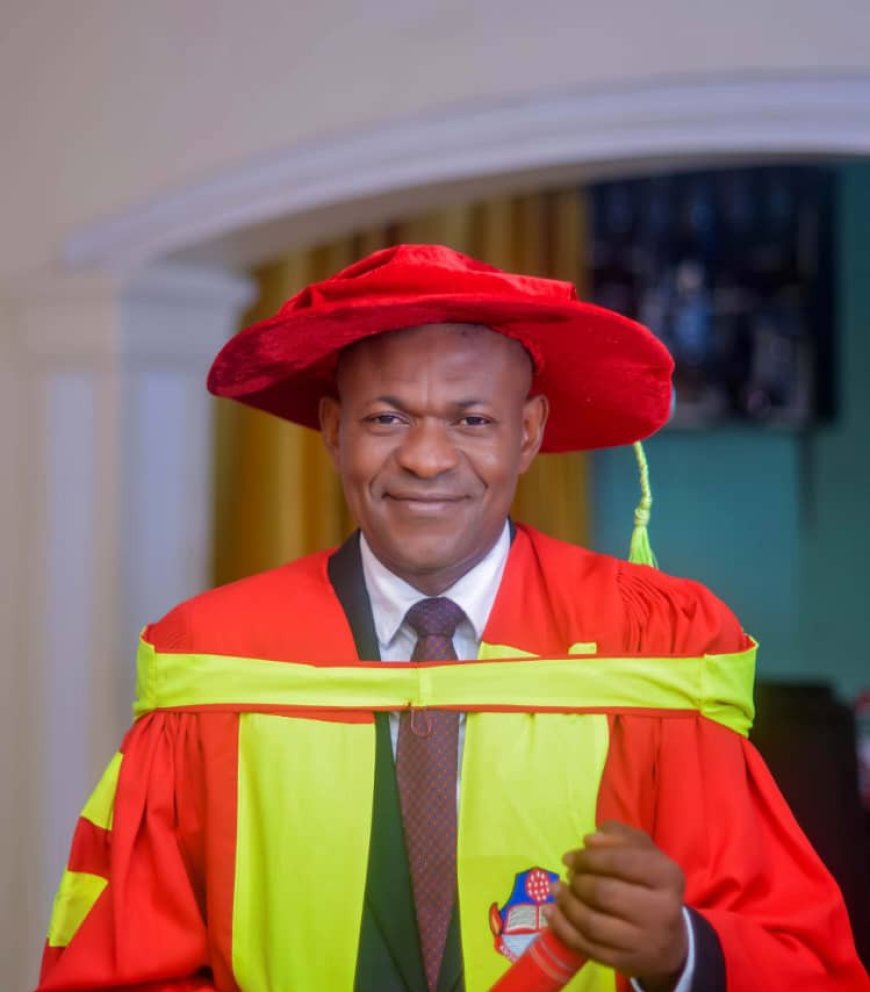SCHOLAR CALLS FOR URGENT REFORMS IN NIGERIA'S EDUCATIONAL SECTOR

By Benjamin GBOR
A scholar, Dr. Patrick Inezi, has called for urgent reforms in Nigeria’s educational sector, to save it from further collapse and attributed the falling standards of education in the country, to poor foundational structures, inadequate policy implementation, unmotivated teaching staff, and lack of community involvement.
Speaking with our reporter in Calabar, Dr. Inezi, lamented that the system was collapsing and therefore needs urgent attention from government at all levels including stakeholders. He regretted that those who enjoyed free education at the time are the ones who have failed to maintain the standard. “Ironically, those who benefited from free, quality education in the 70s and 80s are the ones who laid this poor foundation. They had everything handed to them and yet failed to maintain the standard.”
Dr. Patrick Inezi, traced his humble educational journey from St. Benedict Primary School in Ogoja through the College of Education, Akamkpa, to the University of Calabar, where he obtained his first degree in History and International Studies, followed by a master’s in the same field. He later earned a PhD in Nigerian-African Studies, with research focused on inter-group relations, specifically the harmonious coexistence between the Obudu people and the Hausa community.
Speaking on the challenges faced throughout his academic pursuit, Inezi recounted the instability that plagued the system. "One of the greatest challenges we had then was strike. ASUU, NASU strikes would delay academic calendars, and we spent more years than planned,” he noted. “Sometimes you enter a crowded classroom with no seats, or your exams get postponed due to lack of venue. These were very common issues."
He also pointed to postgraduate-level challenges, highlighting the lack of dedicated study facilities. “At that level, you're expected to do independent research, but many universities lack specialised lecture rooms for postgraduates. When you're forced to study at home, distractions from family and business reduce your academic focus,” he said.
He also pointed at poorly trained and unqualified teachers, outdated curricula, inadequate infrastructures especially, in southern schools, examination malpractice and impersonation, weak policy implementation, and lack of parental involvement.
“There are schools where parents don’t even know their children teachers.” he lamented. “It is not enough to pay fees. Parents should be involved in academic follow-ups. Some schools in Calabar even restrict parents from classroom interaction. That’s wrong.”
Dr. Inezi further criticized the fast-tracked academic process that produces unemployable graduates. “A child finishes university by age 20 and is thrown into a society not ready for him. We should instead incorporate skills and vocational training from an early stage.”
To revamp the educational sector, Dr. Inezi urged the federal and state governments to enhance teacher quality through continuous training and pedagogical development, reform curriculum to reflect national needs and global trends, including ICT and vocational education, improve teacher motivation with better salaries, benefits, and staff quarters, provide adequate infrastructures including libraries, laboratories, and functional classrooms, strengthen school security especially in vulnerable regions and promote policy implementation and community engagement in schools.
“Teachers should not only be qualified but should have the right methodology. We should bring back quarters for teachers to live in schools. That helps productivity,” he said.
He also stressed the importance of ICT integration, citing that many students are expected to take digital exams like JAMB without ever touching a computer. “We jumped into a system we are not ready for,” he remarked.
To young people, Dr. Inezi advised focus, discipline, and skill development.
“You must start from somewhere and be passionate about your path. Don't just chase wealth; follow the ladder. Acquire skills alongside education. Parents should guide their children and schools should ensure supervision.”
He concluded by calling for collective action from the government, educators, parents, and the community to restore the integrity and value of education in Nigeria.
“In every desert, there must be an oasis. Good things don't come easy. But with the right effort, we can rebuild the system,” he said.














































